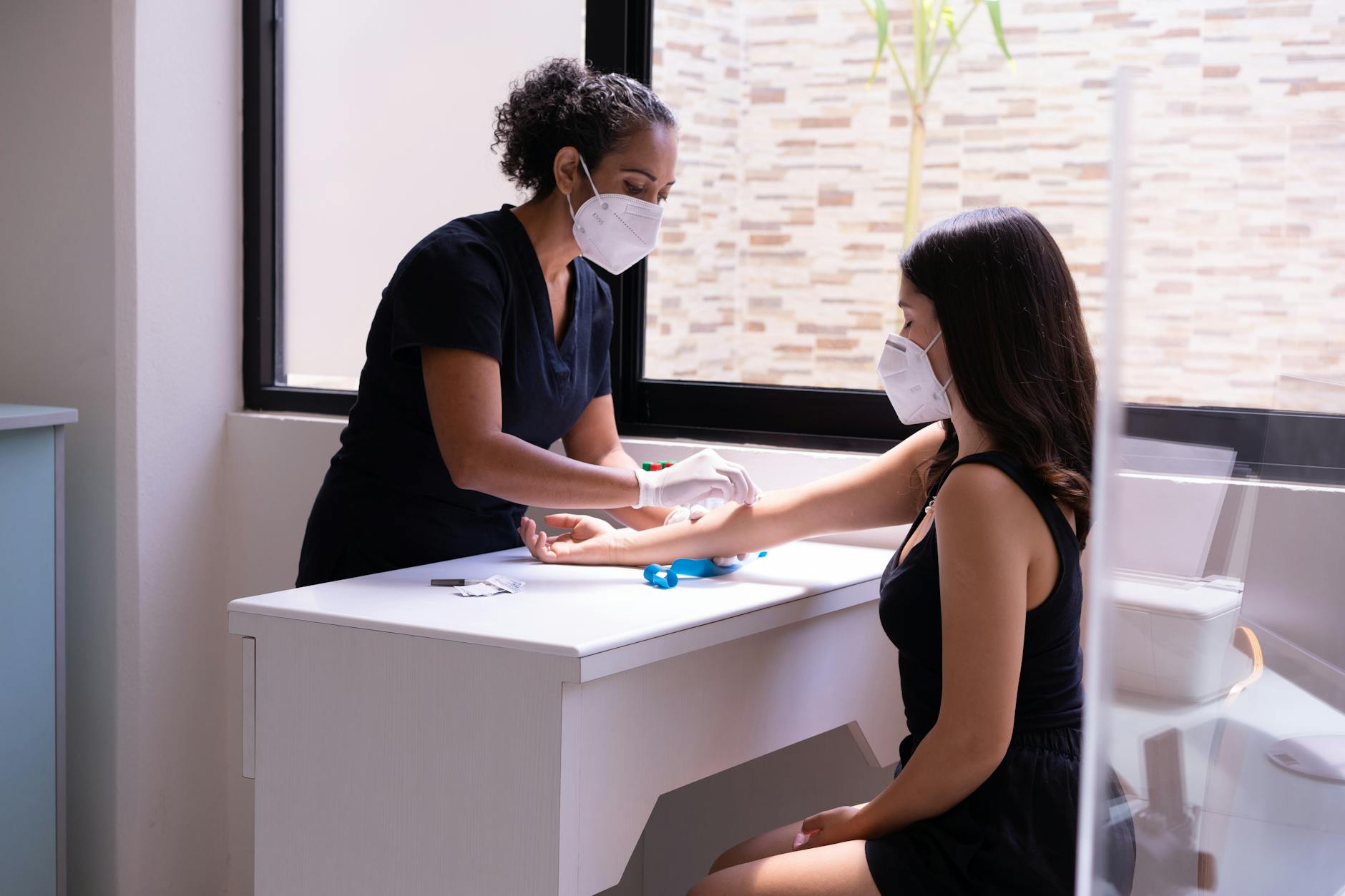Subjecting yourself to medical tests is a must if you want to ensure that your health is in tip-top shape. There are many types of medical tests you can have but the most common ones that are included in routine check-ups include X-rays, urine analysis, and blood works. Providers use these to assess your general health condition, spot budding illnesses, suggest lifestyle tweaks, and many more. However, there are other kinds of medical tests — the ones used to confirm if you have a disease or infection. And one of them is the Aso Titer.
So, what exactly is Aso Titer? And how can it help you unmask a potential threat? The Furry Companion is here to help you!

Table of Contents
What Is Aso Titer?
Aso titer, also known as ASLO, is a blood test that stands for Antistreptolysin O Titer. It is done to detect the number of antibodies against streptolysin O present in your body. The production of that kind of antibody is usually in response to a strep infection.
Here’s what those terms mean:
- Antibodies – Proteins produced by your body in response to the presence of a harmful substance
- Streptolysin O – a toxin produced by GAS bacteria, or group A streptococcus bacteria
- Group A Streptococcus (GAS) – a type of bacteria that are commonly found either in your throat or on your skin
With the Aso titer test, your doctor will be able to confirm if you’ve had a recent strep infection. The Aso antibodies may still be present in your blood for several months after the infection goes away.
Why Is The Antistreptolysin O Titer Strep’s Worst Enemy?
A physician will only order an Aso titer test if you have symptoms of an infection, or if you may have the signs of a strep infection that remains untreated.
The test results reveal the level of antibodies present in your blood. An elevated Aso titer test is indicative of a recent strep infection, whether you’ve exhibited symptoms or not. A negative result, on the other hand, reveals otherwise. Sometimes, your healthcare provider may be inclined to do the test again within a month just to make sure of your status. That’s because some previously negative tests turn out to be positive the second time around.
But why do they have to make sure you haven’t had a strep infection?
An untreated infection caused by group A streptococcus can lead to complications. Below are some of them:
Glomerulonephritis
Glomerulonephritis is an inflammatory condition of the kidney. Specifically, it affects the glomeruli, or the small filter in your kidneys. Some of its symptoms include high blood pressure and fluid retention in your face, abdomen, and extremities. Your urine may also be foamy or turn out pinkish.
Your kidneys may recover from glomerulonephritis if it’s temporary and detected early. However, some cases are permanent and can worsen over time. Those can lead to other serious kidney problems like chronic kidney disease or acute kidney injury. Take this Kidney Cleanse Detox to help you take care of your kidney.
Rheumatic Fever
Rheumatic fever is an autoimmune disease that affects your joints, heart, brain, and skin. Fever, fatigue, painful and tender joints, chest pain, shortness of breath, elevated heart rate, and uncontrollable movements are some of its symptoms.
The condition, which is also known as rheumatic heart disease, may cause severe and permanent damage to your heart. Often, the negative effects show around one or two decades from the onset of the original illness. However, more severe cases can cause heart damage even during the presence of symptoms. Take this best-seller supplement for joint support.
Bacterial Endocarditis
Bacterial endocarditis is an infection that affects one or more of the heart’s valves. These valves support the flow of your blood through your heart and lungs and the rest of your body. Some of the symptoms of bacterial endocarditis are fatigue, fever, chills, shortness of breath, muscle and joint pain, and chest pain.
Much like the other complications mentioned, bacterial endocarditis is also a serious condition. In fact, the illness, also known as infective endocarditis, is considered life-threatening. Take this Heart supplement to help you take care of your heart health.

How Is The Test Done?
A healthcare provider will take a blood sample from you. The test is relatively safe and risk-free but some of the most common adverse events include:
- Pain at the site where the blood is drawn
- Difficulty in getting a blood sample due to varying sizes of veins and arteries
- Becoming light-headed
- Bleeding in the needle insertion site
What Symptoms Will Your Healthcare Provider Look For?
The common symptoms most indicative of a streptococcal infection include fever, fatigue, shortness of breath, and chest pain. Other cases involve dark or pinkish urine, or fluid retention, especially around the face, abdomen, hands, and feet.
If your doctor spots those signs, they may recommend you to take an Aso titer test.
How Do You Prepare For The Aso Titer Test?
Like many blood tests, the most basic preparation for the Aso Titer test includes fasting, or refraining from food or fluids, six hours before the test.
Aside from fasting, you may also need to stop taking certain medications before the test. Some drugs, particularly antibiotics and corticosteroids, may reduce the amount of Aso antibodies in your body, which may prevent the healthcare providers from getting an accurate diagnosis. Consult with your physician on whether or not you need to temporarily stop certain medications or supplements you are currently taking, particularly if you have co-morbidities.
Always talk with your doctor before the test so they will have thorough understanding of your overall health conditions, medications and lifestyles. The Aso titer is sensitive, so following your doctor’s instructions is crucial in getting accurate results.
Three Ways To Avoid A Strep Infection:
Because strep infection can lead to complications and even death, it is very important to try and avoid contracting it altogether.
There are a lot of information regarding strep infections, which can often be overwhelming. Scientific terms that may seem foreign to the lay person can make the topic seem complicated and worrying as many of the complications that can result from getting the infection are all serious and can be life-threatening.
However, there are several ways we can prevent getting infected and they are very easy to follow. Try to make them a habit so even if you aren’t consciously doing them, you can be assured that you are protected.
Here are three ways you can defeat the group A streptococcus bacteria and avoid getting a streptococcal infection:

Always Wash Your Hands
Strep infection usually spreads when droplets containing the bacteria get sprayed around. You may contract it by accidentally inhaling or swallowing the drops or by rubbing them into your eyes. The bacteria may spread when someone who has the infection coughs or sneezes. You may also get it from touching surfaces or things where the droplets have landed on.
To prevent that, you may want to wash your hands frequently and thoroughly. Use soap, too, and rub it over your entire hand, from your fingertips to your palms. Make sure to include your wrist and the spaces between your fingers as well. In general, your entire handwashing routine should last for at least 20 seconds. That way, you can remove the bacteria from your hands.
Keep Your Personal Items To Yourself
To avoid getting a strep infection, make sure to refrain from sharing your personal belongings with other people. That includes eating utensils, drinking glasses, water bottles, and toothbrushes. If you let others borrow those items, you run the risk of getting infected if they happen to have a GAS infection.
Aside from not sharing personal items, you may want to keep those things clean for your own use too. Don’t let them sit long without being washed, and make sure to clean them properly.
Exercise Caution Around Sick People
Some of the symptoms of a previous strep infection involve common illnesses like fever and fatigue. That means you won’t be sure what a sick person has unless they get tested for their condition. That leaves you vulnerable to contracting the bacteria if you happen to interact with someone who has it.
Because of that, try to exercise caution when you’re around sick people. Avoid kissing them, especially on the mouth. That doesn’t just prevent you from getting a GAS infection, it also helps you avoid contracting what they have. You may need to wear a face mask around them if you want to interact with them.
A Firm Reminder: Follow Your Provider’s Instructions On Antibiotics Use
Antibiotics are one of the main fighters against a GAS infection. After all, that type of medication is what works best against bacterial conditions. However, there’s such a thing as antibiotic resistance. It’s when bacteria and fungi get used to the medications formulated to get rid of them. When that happens, they gain resistance, thereby making the medicine practically useless against them.
To avoid that, you have to follow your healthcare provider’s instructions down to the very last word. Don’t take antibiotics if they’re not prescribed for you. And if it’s in your prescription, take it only at the recommended dose. Remember, antibiotics won’t be able to work for you in the future if you misuse them now.
To Wrap Up
An antistreptolysin O titer test can reveal whether you’ve had a recent strep infection. A simple blood extraction will be able to reveal it, but sometimes, the test can give out a false negative result at first. That’s why it’s crucial that you follow your doctor’s instructions when preparing for it. However, your provider will only suggest the Aso test if you exhibit symptoms of the condition.
The infection may sound frightening, especially with the complications related to it. Fortunately, there are simple steps you can take to try to avoid contracting it, like:
- Washing your hands properly and thoroughly
- Keeping your personal items to yourself and not sharing them, and
- Exercising caution around sick people
In addition to those three, you also need to follow your provider’s instructions regarding the use of antibiotics. Using the medication improperly may lead to antibiotic resistance, which comes with its own host of complications.
If you ever experience symptoms like fever, fatigue, chest pain, shortness of breath, fluid retention, or dark urine, contact your provider right away. And when in doubt about your health status, it’s always best to seek medical assistance.
FAQs
What does a positive ASO titer mean?
What happens when ASO is positive?
What is ASO disease?
Which disease would cause an increased ASO titer?
Is ASO related to arthritis?
Can high ASO titre cause heart disease?
What is normal ASO titer level?
Is ASO positive curable?
What causes strep infection?
What are the symptoms of strep in the blood?

